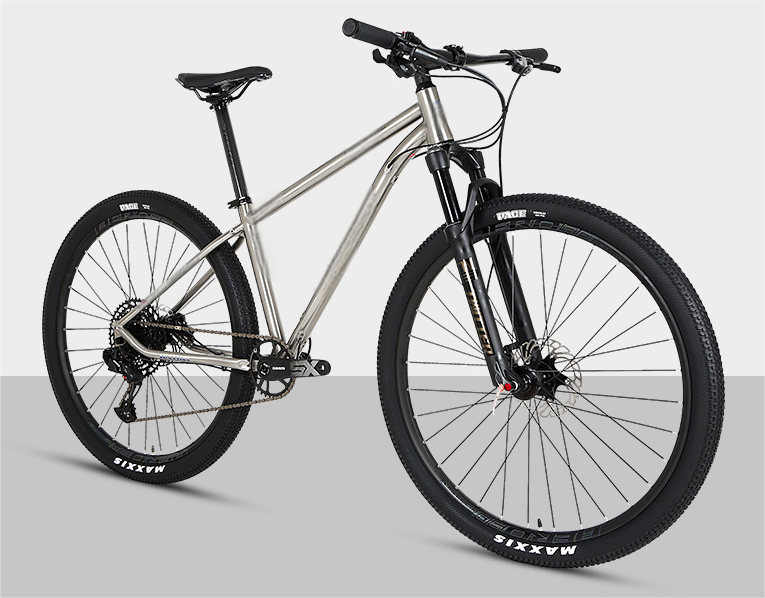
Titanium bicycles are made of Titanium Materials. Titanium bicycles have significant advantages in terms of riding experience and durability. Firstly, its weight is relatively light, with a titanium alloy density of only 60% of steel, making the frame of a titanium bicycle lighter. This not only improves riding speed but also reduces the rider's physical exertion. Secondly, titanium alloy has excellent strength and fatigue resistance, with higher hardness than stainless steel and high tensile strength. It is suitable for long-term cycling and can effectively reduce the impact of road surface on riders. In addition, titanium alloy has extremely strong corrosion resistance and is almost not corroded by various environmental factors, maintaining a good appearance without the need for additional coating. Most importantly, titanium alloy has a long service life and can be considered a semi permanent frame, making it an ideal choice for consumers who pursue high quality and long-lasting use.
Performance Comparison between Titanium Bicycles and Carbon Fiber Bicycles
In terms of weight, carbon fiber frame is lighter and is the lightest bicycle frame material on the market. The weight of titanium alloy frame is between aluminum and steel, although lighter than steel, it is not as light as carbon fiber. In terms of riding experience, carbon fiber frames can provide a soft and sensitive riding sensation, while titanium alloy frames have a unique riding sensation, which many riders consider to be the best riding experience. In terms of strength, carbon fiber requires greater force to break, but has a slight advantage in tensile strength; Titanium alloys are not easily broken under immense pressure, but may deform during collisions. In terms of durability, titanium alloy frames have a longer lifespan, especially when facing bumps and impacts during daily cycling. In terms of environmental impact, carbon fiber has higher carbon emissions than titanium alloy, but bicycles as a mode of transportation are still lower than cars and other public transportation. In terms of repair difficulty, carbon fiber frames are easier to repair, while titanium frames are more difficult to repair. In terms of price, Titanium Bicycle Frame is usually priced higher than carbon fiber frame due to its high processing difficulty and material costs.
Daily maintenance of titanium alloy bicycles
Daily maintenance is crucial to maintain the optimal performance of titanium alloy bicycles. Firstly, after each ride, the bicycle should be wiped with a clean, soft, and damp cloth to remove dust, dirt, and grime. For difficult to clean areas, specialized bicycle cleaners and brushes can be used, but avoid using cleaners containing highly corrosive chemicals. Secondly, regularly add an appropriate amount of bicycle specific lubricating oil to moving parts such as chains, transmissions, and brake clamps to reduce friction between components and improve their service life. In addition, before riding, check whether the tire pressure, braking system, and transmission system are working properly. Finally, when not in use, bicycles should be stored in a dry and ventilated indoor environment, avoiding direct sunlight. If the bicycle gets wet from rainwater, it should be dried off in a timely manner before storage.
In summary, titanium bicycles stand out among many bicycle materials due to their lightweight, high strength, corrosion resistance, long service life, and comfort. Compared to carbon fiber bicycles, titanium bicycles have more advantages in durability and riding experience. Therefore, for cycling enthusiasts who pursue high performance and durability, titanium bicycles are a worthwhile choice to consider. Meanwhile, proper daily maintenance is also the key to maintaining the optimal performance of titanium bicycles.
